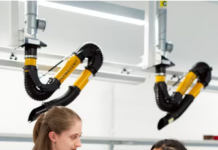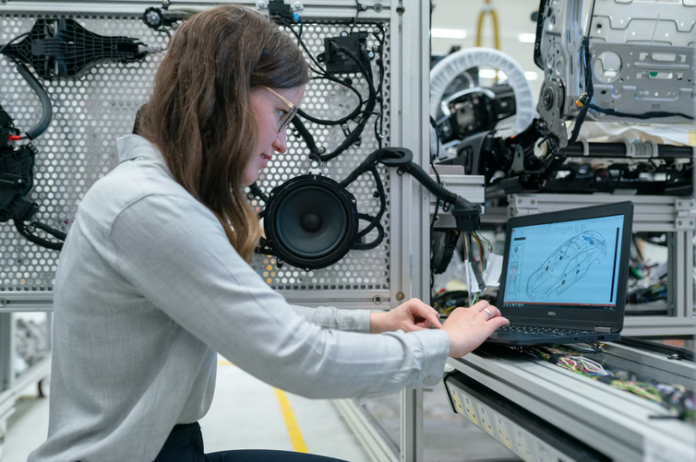The future of work is undergoing a profound transformation driven by technological advancements that are reshaping industries, job roles, and career pathways. From automation and artificial intelligence to remote work and digital collaboration tools, technology is influencing how we work, where we work, and the skills needed to thrive in the evolving workforce.
Technology’s Impact on Careers
- Automation and AI Integration: Automation technologies and artificial intelligence (AI) are revolutionizing industries by streamlining processes, enhancing efficiency, and augmenting human capabilities. Tasks that were once manual or repetitive are now automated, allowing employees to focus on higher-value work that requires creativity, critical thinking, and problem-solving skills. AI-driven algorithms analyze data, generate insights, and automate decision-making, transforming industries such as healthcare, finance, manufacturing, and customer service.
- Remote Work and Digital Collaboration: The shift towards remote work and digital collaboration tools has accelerated, driven by advancements in communication technology, cloud computing, and virtual collaboration platforms. Remote work enables flexibility, work-life balance, and access to global talent pools, transforming traditional office environments and fostering distributed teams. Collaboration tools such as video conferencing, project management software, and virtual workspaces facilitate seamless communication, teamwork, and productivity across geographies.
The Evolving Skills Landscape
The future of work is characterized by a demand for new skills and competencies that align with technological trends and industry shifts:
- Digital Literacy and Tech Skills: Digital literacy, including proficiency in using digital tools, navigating online platforms, and leveraging data analytics, is essential in the digital era. Tech skills such as coding, cybersecurity, cloud computing, and AI/machine learning are in high demand across industries, driving the need for upskilling and reskilling initiatives. Individuals with strong digital competencies have a competitive edge in the job market and can adapt to rapid technological changes.
- Soft Skills and Emotional Intelligence: While technical skills are crucial, soft skills such as communication, collaboration, adaptability, and emotional intelligence are equally important in the future workplace. As automation takes over routine tasks, human-centered skills become increasingly valuable for building relationships, leading teams, and navigating complex challenges. Soft skills enable employees to thrive in diverse work environments, foster innovation, and drive positive organizational culture.
Embracing Lifelong Learning
Continuous learning and professional development are integral to navigating the future of work:
- Lifelong Learning and Upskilling: Lifelong learning is a mindset and practice that involves acquiring new knowledge, skills, and competencies throughout one’s career. Upskilling initiatives, online courses, certifications, and microlearning modules empower individuals to stay relevant, adapt to industry trends, and pursue career advancement opportunities. Employers play a crucial role in supporting employee development through training programs, mentorship, and learning resources.
- Adaptability and Resilience: Adaptability and resilience are key traits for thriving in the dynamic and fast-paced work environment of the future. Embracing change, learning from setbacks, and being open to new experiences enable individuals to navigate uncertainties, embrace innovation, and seize opportunities for growth. Cultivating a growth mindset fosters continuous improvement, creativity, and resilience in the face of challenges.
The Future of Work: Opportunities and Challenges
The future of work presents opportunities for innovation, entrepreneurship, and collaboration, while also posing challenges related to job displacement, skills gaps, and workforce diversity:
- Entrepreneurship and Gig Economy: The rise of entrepreneurship, freelancing, and the gig economy offers individuals the flexibility to pursue independent work, creative ventures, and diverse career paths. Digital platforms and online marketplaces connect freelancers with clients, projects, and opportunities, enabling a decentralized and agile workforce ecosystem.
- Workforce Diversity and Inclusion: Diversity, equity, and inclusion (DEI) initiatives are critical for building inclusive workplaces that value diverse perspectives, talents, and experiences. Embracing diversity fosters creativity, innovation, and collaboration, leading to better decision-making and organizational performance. Companies that prioritize DEI attract top talent, improve employee engagement, and contribute to positive societal impact.
Conclusion
The future of work is shaped by technological innovation, digital transformation, and evolving workforce dynamics. Embracing technology, developing new skills, and fostering a culture of lifelong learning are essential for navigating the opportunities and challenges of the future workplace. As careers evolve, individuals and organizations alike must adapt, innovate, and collaborate to thrive in an increasingly interconnected and dynamic global economy.




























